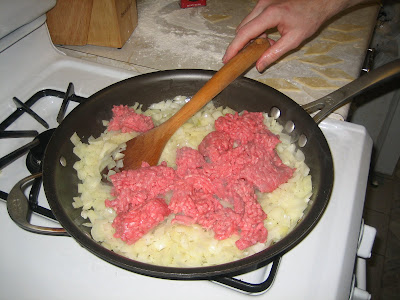"God save you, dear reader, from an idée fixe, better a speck, a mote in the eye. Look at Cavour: It was the idée fixe of Italian unity that killed him. It’s true that Bismarck didn’t die, but we should be warned that nature is terribly fickle and history eternally meretricious."
Book: The Posthumous Memoirs of Bras Cubas by Joaquim Maria
Recipes: The Brazilian Kitchen by Leticia Moreinos Shwartz
Bobo de Camarao
(Shrimp Stew with Coconut and Yucca Sauce)
1 small yucca (about 11 oz)
3 tbsp Dendê oil
1/2 cup chopped onion
1/3 each green, red, and yellow (or orange) bell pepper, chopped
2 scallions, chopped white and green portions
2 stalks celery, chopped
4 cloves garlic, pressed
1/2 cup white wine
2 cups shrimp stock (or chicken stock)
1 cup coconut milk
2 tbsp tomato paste
For the Shrimp
1 lb shrimp, peeled and deveined
Salt and pepper
2 tbsp butter
pinch of ground nutmeg
Garnish
3 plum tomatoes, peeled, seeded, and chopped
1/4 cup fresh cilantro
Yucca is a completely new experience for me. I love it. Cut the ends off, peel it, slice it lengthwise and use a paring knife to remove the woody core (you will not even be able to find this until you have sliced it in half). Cut it into cubes and bring to a boil in salted water. Cook for 15 to 20 minutes or until tender. Mash or mix with a handblender. It is much pastier than potatoes, and a bit harder to mash, but the flavor and smoother texture are well worth the extra effort. Kitchen helper Hannah is now officially a yucca peeling Ninja master (complete with sound effects).
While the yucca is boiling, saute onions, celery, and peppers in a stock pot until they are translucent, about 5 minutes. Add the garlic and cook an additional 1-2 minutes. Add the wine. We used 1 cup because I didn't want my garlic to brown and kitchen helper Jerilyn was so intrigued by the cookbook, she kept losing my page. Reduce wine by half. Add stock (where on earth do you find shrimp stock without making it yourself?) and coconut milk. Bring to a boil. Add the tomato paste (I forgot that ingredient), then start adding the yucca about a tablespoon at a time until the soup is at your desired consistency. The recipe says 1/2 cup but we added all the yucca we'd cooked. Leave the soup to simmer over low heat while you make the shrimp.
Melt the butter over medium high heat. Salt and pepper the shrimp and cook until they are just no longer translucent. Or you could buy frozen, pre-cooked shrimp and skip this step. That's what we did and it worked out fine.
Add the shrimp to the soup to heat them through, being careful not to let it boil or over-cook the shrimp. Stir in the tomatoes, cilantro, and nutmeg (another ingredient we accidentally omitted) and serve with some kind of bread for dipping.
We could have used a fancy Brazilian bread, but I just threw some par-baked dinner rolls into the oven and served with those. We had a spinach and tomato salad with lime and olive oil for appetizer and we had more of the Batida de Banana with our meal and as a sort of impromptu dessert. Jerilyn enjoyed them but her first taste confirmed: A cup of rum, is a lot of rum! It was a wonderful meal. We rushed through the eating a bit as we were running late to hear our friends play at Arlene's Grocery. But we all agreed, this is a keeper recipe.
About the book:
The narrator, perhaps because he is dead, has a whimsical approach to his own narrations. They are full of interruptions and backtracking, or forward-tracking, as he is telling the story in reverse (starting with his death, rather than his birth). And his prose is absolutely peppered with allusions that I have never heard before. I need to look them all up before I can properly blog about them. Which I will do soon.



























